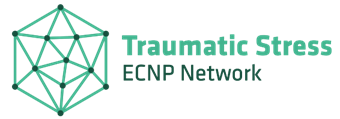Traumatic Stress Network
“Through the activities of our Network we have been able to bring together clinicians and scientists working on preclinical as well as clinical domains related to traumatic stress. Important activities have been the preparation of a Marie Curie grant about an approach “golden hours” for the curative treatment of anxiety and PTSD (GHO4CURE), as well as a NATO grant on “Terrorism induced Stress”. We capitalize on a golden hours approach of trauma, including novel approaches to pharmacotherapy for the relief of trauma-related disorders. Our members also published an important paper about an RDOC approach to PTSD.”
|
Mission statement/aims
Memories for emotionally arousing and stressful events are retained well in general. From an evolutionary point of view this is beneficial since it prepares individuals for future threats. An extreme example of retention of these events occurs in posttraumatic stress disorder (PTSD), which is characterized by persistent vivid and inappropriate memories of traumatic situations. These events can be life threatening situations such as military combat, natural disasters, terrorist incidents, serious accidents, or violent personal assaults which significantly impair the person's daily activities. Despite efforts to develop more effective therapies, PTSD remains a difficult disorder to treat. There is currently no effective medication for the treatment of PTSD and pharmacotherapy is used for symptom management.
Recent studies, both in experimental animals and humans, demonstrate that memories for emotionally arousing events become labile upon retrieval. More specifically, the molecular machinery that is required for consolidation of arousing information needs to be activated in order to store the information (reconsolidation). A major implication is that targeting the process of reconsolidation offers a highly relevant approach to pharmacologically target the expression of fearful and traumatic memories.
Two windows of opportunity that can be defined as ‘golden hours’ can be identified: event-based golden hours and exposure-based golden hours. The first are defined by the traumatic event, and subsequent consolidation of the traumatic event. The second are determined by the setting in which exposure as a therapeutic tool is introduced and the subsequent reconsolidation phase.
There are currently several compounds that are used in preclinical studies to target systems or receptors which are fundamental for consolidation and reconsolidation. While this offers an enormous opportunity to target these emotions, and there is some validation from clinical studies, there is currently a lack in the translational on a wider scale between fundamental and clinical scientists to optimally use the capitalize knowledge from the different domains.
The ECNP Traumatic Stress Network is composed of a group of experts from basic and clinical neuroscience, that will focus on the need to use translational and interdisciplinary approaches to come up with new concepts to target traumatic memories and provide opportunities for secondary prevention.
The goals of the Traumatic Stress Network are:
- Explore and promote translational and interdisciplinary approaches to come up with new approaches and concepts to target traumatic memories and provide opportunities for secondary prevention.
- Organize annual meeting targeted at new research directed at a better understanding of the relation between trauma and stress related disorders.
- Define research designs for the advancement in the different domains (basic, clinical, pharmacological).
- Join forces to come to larger Networks with higher aim to apply for funding (e.g. ERANET, Horizon Europe, NATO).
- Advise, recommend, define guidelines for novel development for treatment.
The main topics that will be studied are:
- History of Psychopharmacology for Traumatic Stress - Where do we come from?
- The Vulnerable Phenotype - Evidence from Molecular Biology
- ‘Golden’ Hours opportunities - Targets and Research Design
- (Re)consolidation of Traumatic Memories - Mechanisms and Translational Issues
- Guidelines for Rational Pharmacotherapy for Disorders related to Traumatic Stress Exposure
In particular the main questions will be:
- When can trauma related memories be treated? (‘Golden’ hours)
- Which mechanisms can be used to target (Consolidation and reconsolidation)
- What determines vulnerability and resilience (Gene and environment interaction)
History
The Traumatic Stress Network consists of experts from different European countries that can warrant and optimize use of existing knowledge in basic, clinical and pharmacological domains. The Network initiated a NATO workshop application that have been submitted early 2016. It remains eager to identify new grant opportunities and collaborate towards proposal submissions.